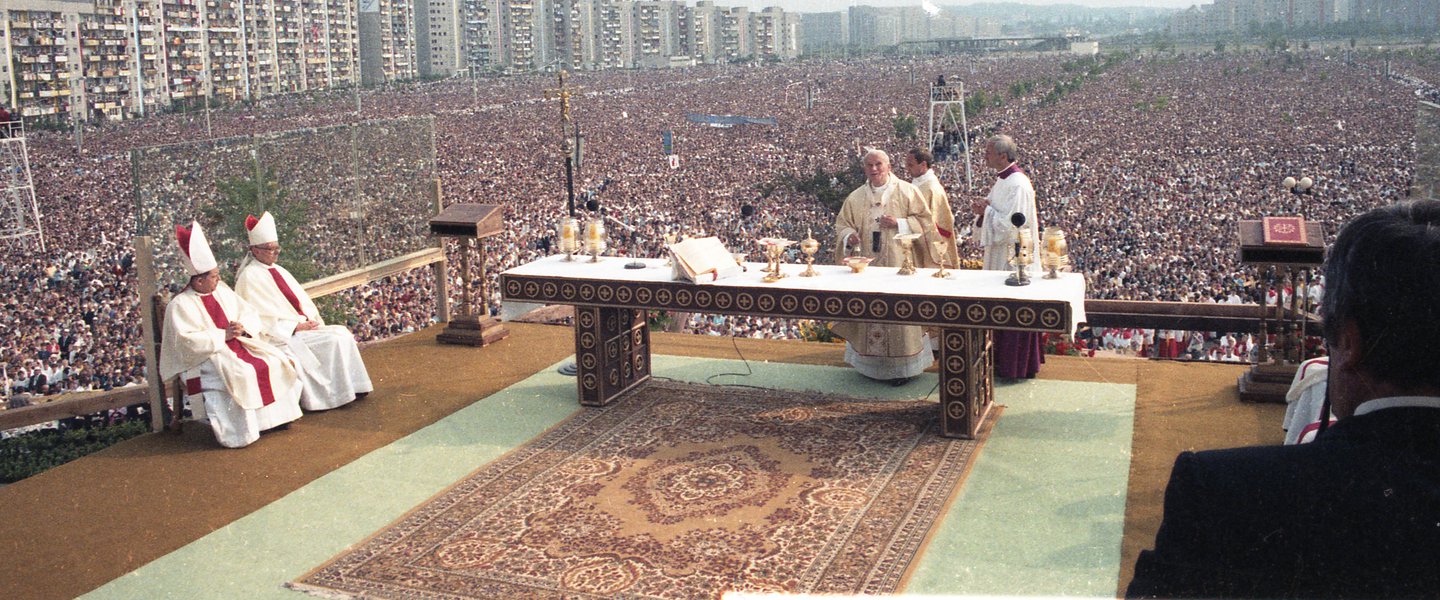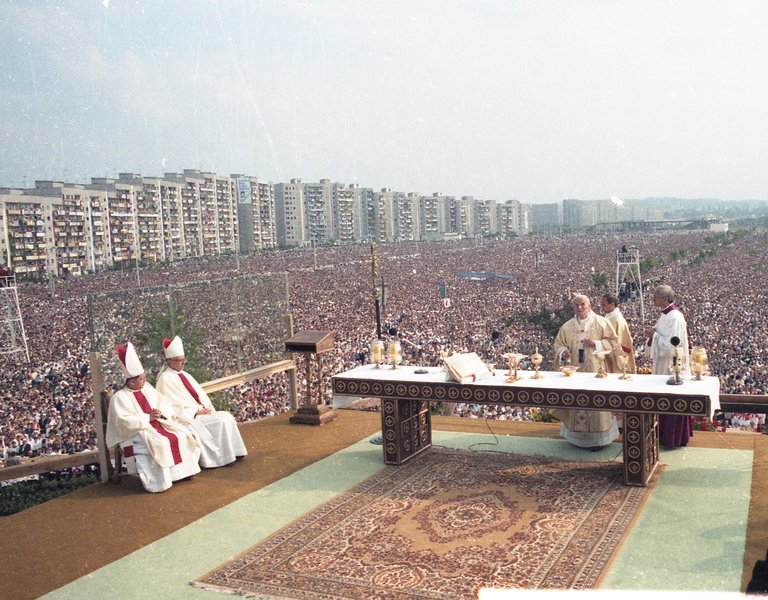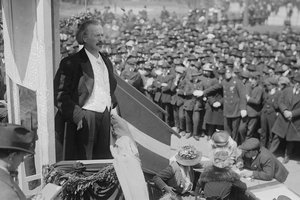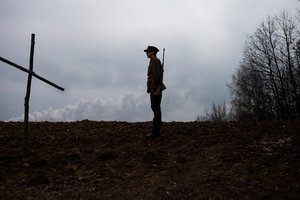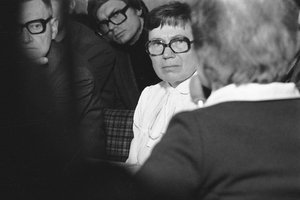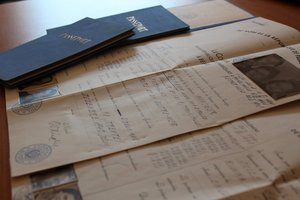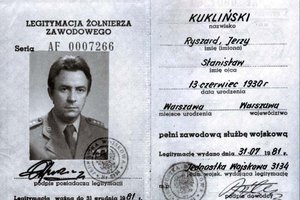The pope who changed Poland
If it hadn't been for John Paul II’s first pilgrimage to Poland in June 1979, there would have been no Solidarity. “The Polish Pope as a spiritual authority contributed to the collapse of communism,” says Paweł Skibiński, Ph.D., historian at the University of Warsaw and between 2010-2015 director of Warsaw’s Museum of John Paul II and Primate Wyszyński.
Pope John Paul II, born Karol Wojtyła, was officially declared a saint by the Vatican on 27 April 2014. He is among the best-known saints from Poland, among them St. Adalbert of Prague, St. Maximilian Maria Kolbe, St. Faustina Kowalska and St. Andrew Bobola. The Polish Pontiff’s beatification process was one of the shortest in history.
The election of a Pole to the papacy in October 1978 stirred up emotions around the world. The conclave broke the rule that the Supreme Pontiff had to be Italian and elected a man from behind the Iron Curtain. "It came as a shock to Communists that it was possible to elect someone from the area they controlled without asking them for permission. The Western world, in turn, was shocked at the election of a person from behind the Iron Curtain as it was generally known that a great majority of the region’s inhabitants were controlled by communist authorities," Paweł Skibiński, Ph.D., historian at the University of Warsaw and director of Warsaw’s Museum of John Paul II and Primate Wyszyński, tells Polska.pl in an interview.
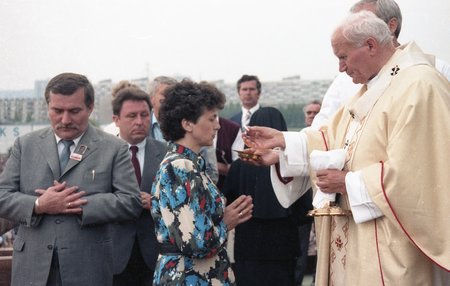 Karol Wojtyła, Primate Wyszyński’s long-time right hand, which made him the number two person in the Polish Church, had a strong influence on Polish society at a time when the Church was the main power protecting Polish citizens against the communist regime's pressure. Karol Wojtyła was appointed bishop in 1957. In the 1970s, he represented the Polish Episcopate as Cardinal Wyszyński's main trusted advisor in many countries, ncluding, the United States and Germany. He also accompanied Wyszyński on his only non-Roman visit abroad—to Germany in 1978. Karol Wojtyła was also an active participant of the Second Vatican Council and in 1968 played a very important role in the drafting of Paul VI’s Humanae Vitae encyclical letter.
Karol Wojtyła, Primate Wyszyński’s long-time right hand, which made him the number two person in the Polish Church, had a strong influence on Polish society at a time when the Church was the main power protecting Polish citizens against the communist regime's pressure. Karol Wojtyła was appointed bishop in 1957. In the 1970s, he represented the Polish Episcopate as Cardinal Wyszyński's main trusted advisor in many countries, ncluding, the United States and Germany. He also accompanied Wyszyński on his only non-Roman visit abroad—to Germany in 1978. Karol Wojtyła was also an active participant of the Second Vatican Council and in 1968 played a very important role in the drafting of Paul VI’s Humanae Vitae encyclical letter.
Although in 1978 it would have been difficult to describe Cardinal Wojtyła's candidacy as consensual, it was acceptable by both the conservative and the liberal wings. Many historians believe that John Paul II was instrumental in toppling communism.
Below we present an excerpt from the interview with Paweł Skibiński about the significance of John Paul II's pontificate for Poland's democratic transition.
Karolina Kowalska, Polska.pl: It seems that the world fell in love with John Paul II at his first public appearance.
Paweł Skibiński: He appeared on the balcony and spoke to the crowd, saying that he had been called from a faraway land. He also asked people to correct him when he spoke “their”—and then he corrected himself— “our” Italian language”.
The public loved him for his clarity and credibility but these very characteristics also won him many enemies. The governing body of the Communist Party in Moscow immediately identified him as potentially dangerous and took radical measures. Today we know about the 1981 assassins' links, through Bulgarian intelligence services, to the KGB. We also know that at some point communists decided to eliminate the Pope.
We shouldn’t forget that during his pontificate, John Paul II was a partner for several generations of politicians: his papacy overlapped with the terms of five U.S. presidents, six Soviet, and later Russian, leaders, many presidents and prime ministers of France, prime ministers of the United Kingdom. Only Queen Elisabeth II’s reign is comparable to John Paul II’s pontificate in terms of duration.
From the Polish perspective it might seem that the whole world loved John Paul II.
He was relatively popular in the media. The reaction to his death is the best proof that the world held the Polish pope in high regard. I remember when George Bush Junior, who is not Catholic, said that for him John Paul II had been a man of the highest standing. Bush was the first American president to ever attend a papal funeral.
It was during John Paul II’s pontificate that the United Stated established diplomatic relations with the Holy See in 1984. But it was not the Polish Pontiff’s only diplomatic success. For the first time since the Reformation, he restored diplomatic relations with the United Kingdom and Sweden. Finally, he established diplomatic ties with Israel and with the Soviet Union, not long before its dissolution. John Paul II strengthened the Holy See’s status as an authority, mainly because he was an authority himself.
The Polish Pope also prevented several armed conflicts, for instance Chile and Argentina at the very beginning of his pontificate, when thanks to him it was possible to solve the territorial dispute without using force.
In popular belief Karol Wojtyła played a significant role in overthrowing communism.
John Paul II was a spiritual authority behind the overthrowing of communism. Poles finally had an international non-communist figure to look up to. The Pope used this, fighting not against the communists but against the abnormal situation of Poland as a totalitarian country.
If it hadn't been for John Paul II’s first pilgrimage to Poland in 1979, there would have been no Solidarity. The pilgrimage was a groundbreaking, sociologically powerful event, since an entire generation of Poles became aware of their power and felt a surge of courage to act. People believed that it was possible to remain faithful to the truth despite the brutal and powerful regime. Solidarity became a nation-wide movement that clearly identified itself with John Paul II. It was no coincidence that the Gdańsk Shipyard’s entrance gate, with its John Paul II’s portrait, became the movement’s symbol. In this sense, the Pope took part in the overthrow of communism, though not as a political actor but rather as an initiator of an ethical movement.
During his 1979 pilgrimage to Poland, John Paul II said the famous words: “Let the Spirit descend and renew the face of the earth. This earth.”
He said these words at a special moment – during the first address as a Polish pope to his compatriots on the Polish land. They concluded a very powerful homily that has remained relevant until today, since it presents Poland as a community of people who unite in their struggle for Christian values. These words changed people.
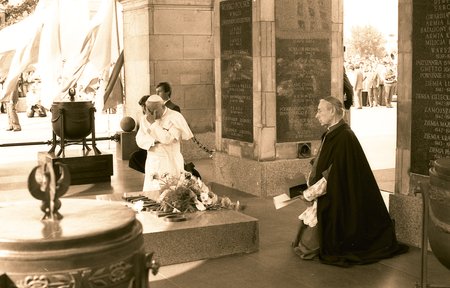
Was it the beginning of a democratic transition?
Also the beginning of an ethical awakening of some sort, which brought about changes in many areas; for example, abortion—we were the only country to toughen its anti-abortion law.
I think that John Paul II also largely contributed to the strengthening of Polish people’s professional integrity, because he showed Poles that they need to be honest at work. After years of being ruled by a communist regime, which had completely demoralised the Polish workforce, it turned out that Poles were able to work hard. Today, we are considered as a reliable and hard-working nation, which is not the case with all post-communist countries.
Is it possible to compare that rebirth to what was happening in 2005, after John Paul II’s death?
At the Museum of John Paul II and Primate Wyszyński, we treat the reaction to the Pope’s death as his last pilgrimage to Poland and all over the world. His death marked the beginning of another moral and spiritual revolution. What was happening in Poland, where people would spontaneously confess to priests in the streets, proves that John Paul II’s death came as a shock. Whether we have learned our lesson should be left to individual judgement. I hope that we have kept at least some of this sensitivity in our hearts.
It was then that the media started talking about the JPII Generation. How would you define it?
The term refers to all those who lived through John Paul II’s pontificate consciously. It’s not a uniform generation, where everybody thinks in the same way, but rather a group of people who regarded John Paul II as an unquestionable authority. It is not possible to describe the JPII Generation in terms of religious activity only. Most of these people are probably practising Catholics. I think it’s more about a sort of moral sensitivity. This generation is certainly less cynical than the one which grew up during communist times, and also less materialistic than the one which followed it.
Interview by KAROLINA KOWALSKA
*Paweł Skibiński, Ph.D. - historian at the University of Warsaw and between 2010-2015 director of Warsaw’s Museum of John Paul II and Primate Wyszyński. He specialises in the contemporary history of Poland and Spain.
16.10.2018
